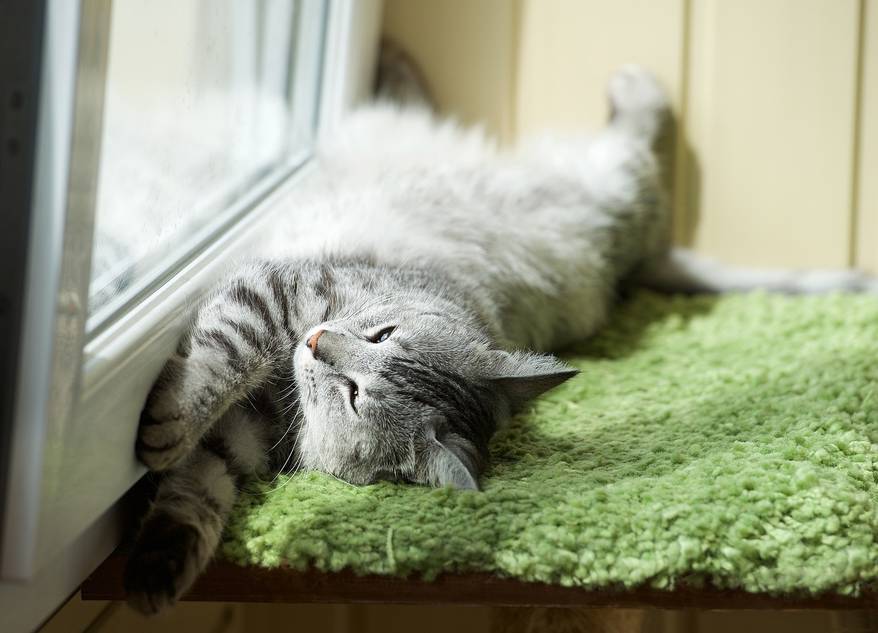
-
Find the right food for your petTake this quiz to see which food may be the best for your furry friend.Find the right food for your petTake this quiz to see which food may be the best for your furry friend.Featured products
 Hill's Science Diet Adult Oral Care Chicken, Brown Rice & Barley Recipe Dog Food
Hill's Science Diet Adult Oral Care Chicken, Brown Rice & Barley Recipe Dog FoodClinically proven kibble technology to reduce plaque & tartar build-up
Shop Now Adult 7+ Small & Mini Chicken & Brown Rice Recipe Dog Food
Adult 7+ Small & Mini Chicken & Brown Rice Recipe Dog FoodFor the unique nutritional needs of mature Small & Mini dogs
Shop Now Adult Small & Mini Lamb Meal & Brown Rice Recipe Dog Food
Adult Small & Mini Lamb Meal & Brown Rice Recipe Dog FoodFor the faster metabolism of Small & Mini dogs
Shop NowFeatured products Adult Indoor Chicken Recipe Cat Food
Adult Indoor Chicken Recipe Cat FoodSupports energy level and beautiful fur in indoor cats
Shop Now Adult Urinary Hairball Control Chicken & Rice Recipe Cat Food
Adult Urinary Hairball Control Chicken & Rice Recipe Cat FoodActively supports the health of the whole urinary system
Shop Now Hill's Science Diet Adult Sensitive Stomach & Skin Dog Food
Hill's Science Diet Adult Sensitive Stomach & Skin Dog FoodHighly digestible recipe, gentle on stomachs. Nourishes skin & promotes a lustrous coat
Shop Now -
Featured articles
 15 Pet-Friendly Cities Ideal for a US Road Trip
15 Pet-Friendly Cities Ideal for a US Road TripCheck out our list of pet-friendly U.S. cities that are excellent travel options, offering off-leash dog parks and pet-friendly restaurants & hotels.
Read More My Pet Ate a Lizard — What Should I Do?
My Pet Ate a Lizard — What Should I Do?Learn what to do if your pet eats a lizard, including whether they can be toxic and symptoms to keep an eye on when they've swallowed one.
Read More Easy DIY Dog & Cat Toys: Nine of Our Favorites
Easy DIY Dog & Cat Toys: Nine of Our FavoritesBrowse this comprehensive guide for several of our favorite DIY dog and cat toys that are sure to put a little pep in your pet's step.
Read More -


You sweat. Your dog pants. But does your cat sweat? And can she pant too? What does she do when she needs cool off?
Do Cats Sweat?
Cats, known for their cool-as-a-cucumber attitude, do, in fact, sweat. You just probably don't see it.
Cats have sweat glands, but most are covered by fur. That means their effects are minimized, but the exception is their paws. Your cat's paws have sweat glands and you might occasionally see proof of that if your cat leaves behind damp footprints, explains Cat Health.
So, do cats sweat? Kind of.
Because cat sweat glands aren't that effective, cats have other ways of cooling off. They bathe themselves, because when their saliva evaporates it cools them down—kind of like taking a lukewarm bath on a hot day. Cats also like to rest in cool places. Spreading their bodies out on a cool surface — like a tiled floor or an empty bathtub — keeps them comfortable. Many cats also shed their undercoats in the warmer months. If your cat seems to be shedding more than usual, you can help by grooming her regularly. It's a dual benefit: grooming your cat is a bonding activity, and you'll cut down on the hair around your house.

While cats have all those ways to stay cool, that doesn't mean they can't become overheated. A cat's normal temperature is about 101 degrees. When it reaches 104 degrees, heatstroke is a possibility.
However, it's pretty unusual for a cat to suffer heatstroke. After all, as Dr. Jason Nicholas notes on Preventive Vet, cats don't typically ride in cars and don't go outside for long periods of intense play or exercise with their owners — common scenarios in which dogs can become dangerously overheated. But, he notes, there are instances of cats suffering heatstroke. Dr. Nicholas writes that some scenarios in which you should consider heatstroke as a possibility include:
- A cat gets trapped in a clothes dryer
- A cat gets trapped in a shed or other structure without air-flow during a hot period
- A cat left confined without ready access to water and shade
- A cat left in a hot car for a prolonged period of time


Tasty Tips
Is Your Cat Overheated?
One common sign a cat is overheated is panting. While common in dogs, of course, cats aren't your everyday panters. They will typically pant in cases of overheating, stress, respiratory distress or some secondary illness and biochemical change. Just like with a dog, cat panting allows heat to escape the body through evaporation.
Dr. Jane Brunt, a veterinarian at the Cat Hospital at Towson in Baltimore, tells Catster that other signs a cat might be overheated include:
- Salivating or drooling excessively
- Vomiting
- Diarrhea
- Bright red gums, tongue, or mouth
- Trembling
- Seizures
- Wobbly walking or disorientation
If you notice your cat is panting and are concerned your cat is overheated or is suffering heat stroke, you should take immediate action to cool her off. Move her out of the sun and, if you can, bring her to a cooler area. Make sure she has cool water to drink by adding an ice cube or two to her bowl. You can also wet her fur with a damp, cold cloth, or wrap a frozen water bottle in a towel and place it beside where she is resting.
If you live in a warmer climate and your cat can't escape the heat in your home for whatever reason (i.e., your air conditioner goes out), you might think about having a backup plan ready to make sure she stays cool during the day when you can't be there to care for her. This could include having her stay with a friend or family or kenneling her at the vet. While cats don't generally love the change of scenery, you'll be thankful that you have an upset kitty rather than a sick one.
If you're concerned your cat is overheated, contact your vet as soon as possible. Let the staff know why you think your cat is suffering from overheating, what time you noticed the symptoms, and what you've done to cool her off. They can let you know what further actions to take and if you should bring her in for care.


Kara Murphy is a freelance writer and pet parent who lives in Erie, Pa. She has a goldendoodle named Maddie.
Related products
Related articles

Put your cat on a diet without them knowing
Our low calorie formula helps you control your cat's weight. It's packed with high-quality protein for building lean muscles, and made with purposeful ingredients for a flavorful, nutritious meal. Clinically proven antioxidants, Vitamin C+E, help promote a healthy immune system.
Put your cat on a diet without them knowing
Our low calorie formula helps you control your cat's weight. It's packed with high-quality protein for building lean muscles, and made with purposeful ingredients for a flavorful, nutritious meal. Clinically proven antioxidants, Vitamin C+E, help promote a healthy immune system.

